
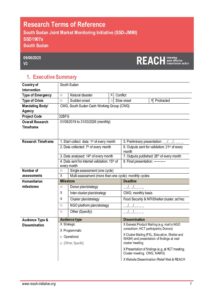
REACH South Sudan - Joint Market Monitoring Initiative (JMMI) ToR (June 2025)
PDF538.7K

Since its independence in 2011, South Sudan continues to experience extremely severe and widespread needs across most sectors with 73% of the population (9 million) in need of humanitarian assistance in 2024. Key drivers of humanitarian needs include an ongoing economic crisis, the lack of basic services and heightened exposure to climatic shocks (especially floodings), conflict and violence and disease prevalence. These underlying factors drive South Sudan to be the fourth most neglected displacement crisis globally, with two million Internally Displaced Persons (IDPs).The outbreak of the Sudan crisis in April 2023 puts an additional pressure on limited resources and access to services as over 700,000 individuals (of which 160,000 refugees) fled to already vulnerable South Sudanese states. The humanitarian situation is likely to further deteriorate in 2024 due to a major flood event anticipated to take place over the second half of the year and affect up to 3.3 million people.
In South Sudan, IMPACT has been present through its REACH initiative since 2012 to inform humanitarian response strategy, prioritization and planning through the provision of timely, accurate and comparable inter-sectoral data and analysis on needs of affected populations. IMPACT work focusses on three objectives: 1) identifying areas at the highest risk of excess mortality to inform emergency prioritization; 2) informing humanitarian strategic planning and annual prioritization; 3) enabling community-centred resilience and local durable solutions initiatives. In addition, IMPACT has started to deploy its PANDA initiative in 2023 to directly support aid actors in improving the effectiveness, efficiency and efficacy of their programs.
Learn more about IMPACT activities in South Sudan by signing up to our country newsletter, or by accessing our Resource Centre.
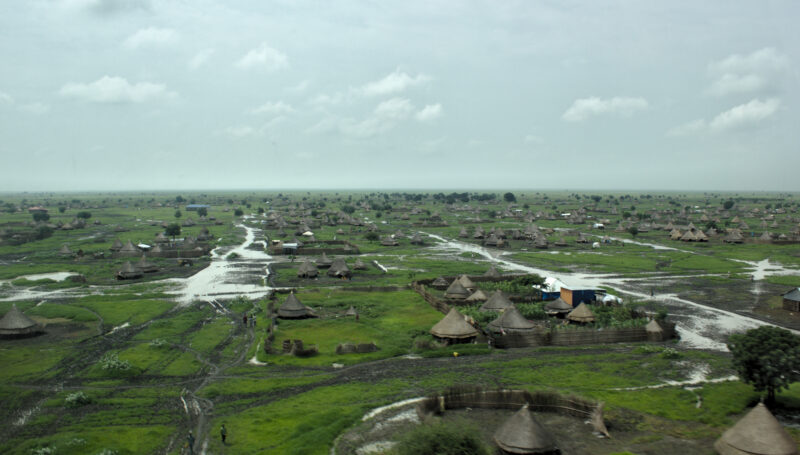
During just 6 weeks beginning in December 2024, clashes in Sudan forced more than 120,000 people across the border into Renk County, South Sudan, marking the largest influx since the...

Our July 2024 Integrated Public Health Rapid Assessment for Rubkona County sheds light on the unprecedented public health crises affecting IDP settlements in Bentiu Town, Bentiu IDP Camp, and Rotriak....
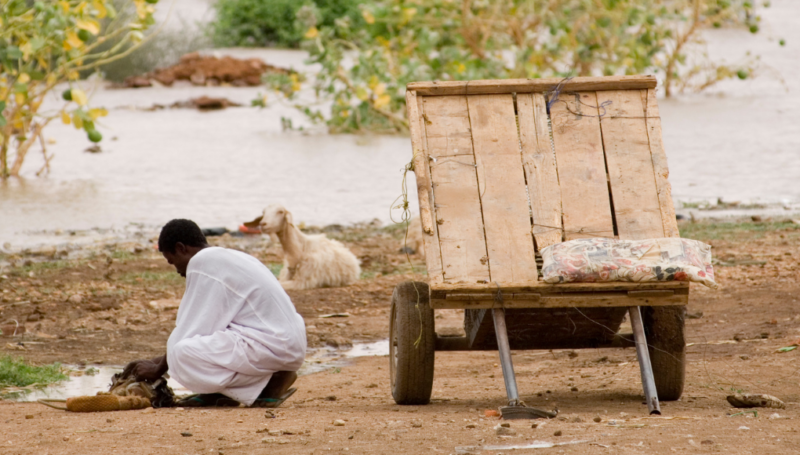
Sudan faces recurring floods that severely impact local communities, especially in vulnerable regions such as North Darfur, West Darfur, Sennar, Blue Nile, and Khartoum. To support humanitarian efforts, IMPACT Initiatives,...


REACH South Sudan - Joint Market Monitoring Initiative (JMMI) ToR (June 2025)
PDF538.7K


REACH South Sudan - Factsheet Joint Market Monitoring Initiative (JMMI) June 2025
PDF10.5M


South Sudan - Renk Emergency Assessment DAP - June 2025
XLSX67.7K

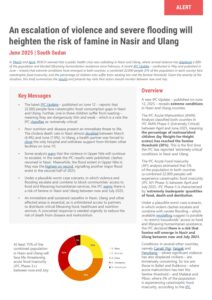
REACH South Sudan - Risk of Famine in Nasir and Ulang - June 2025
PDF227.7K


REACH South Sudan - Dataset & Analysis Joint Market Monitoring Initiative (JMMI) June 2025
XLSX1.8M

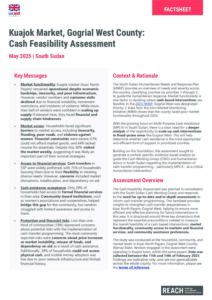
REACH South Sudan Kuajok Market - Gogrial West Cash Feasibility Assessment_Factsheet_May_2025
PDF3.5M

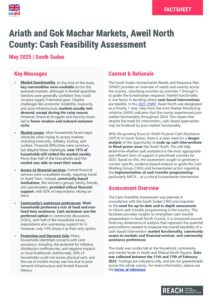
REACH South Sudan Gok Machar and Ariath Markets - Aweil North Cash Feasibility Assessment_Factsheet_May_2025
PDF3.5M


South Sudan - Rapid Emergency Assessment Fangak - May 2025
PDF315.0K


REACH South Sudan - Dataset & Analysis Joint Market Monitoring Initiative (JMMI) May 2025
XLSX1.7M

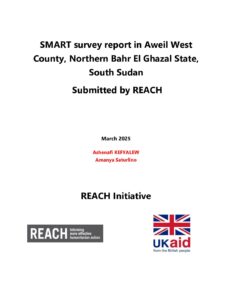
South Sudan - Aweil West County SMART Survey Report - March 2025
PDF1.5M

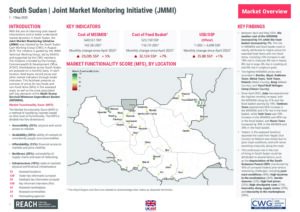
REACH South Sudan - Joint Market Monitoring Initiative (JMMI) Factsheet - May 2025
PDF7.6M

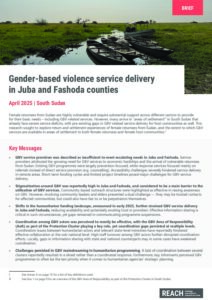
South Sudan - AAP Female Returnees Assessment Brief - April 2025
PDF1.2M

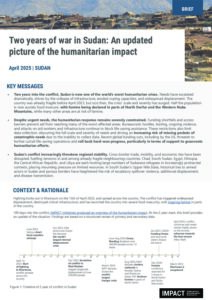
Two years of war in Sudan: An updated picture of the humanitarian impact
PDF2.0M

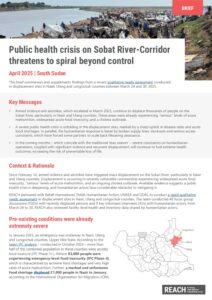
REACH South Sudan - Public Health Crisis in Upper Nile State - April 2025
PDF464.2K

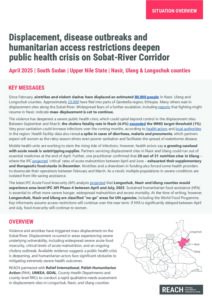
REACH South Sudan - Situation Overview in Upper Nile State - April 2025
PDF387.0K

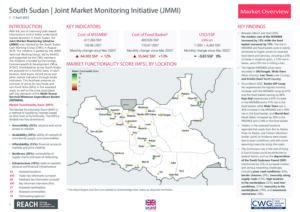
REACH South Sudan Joint Market Monitoring Initiative (JMMI) Factsheet (April_2025)
PDF7.8M